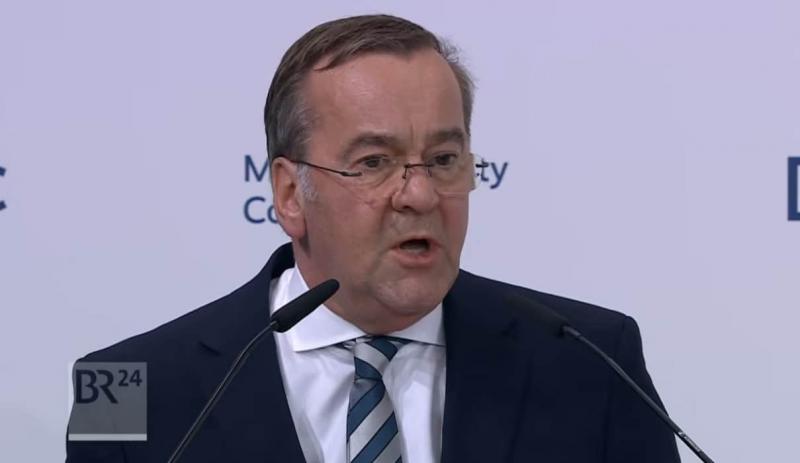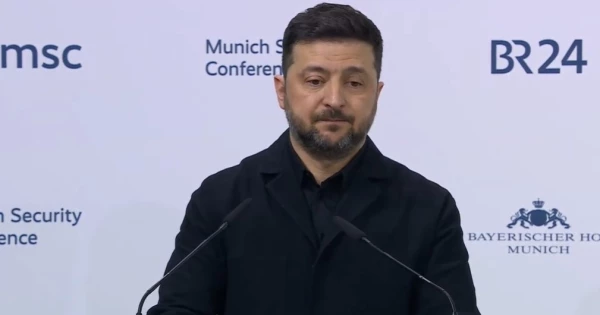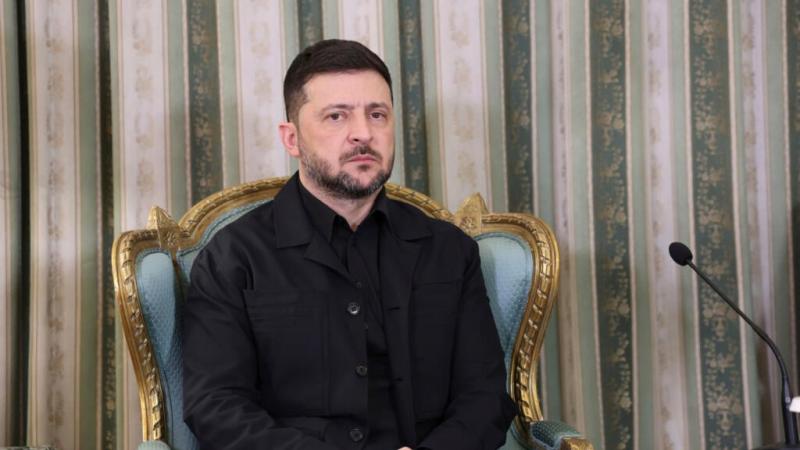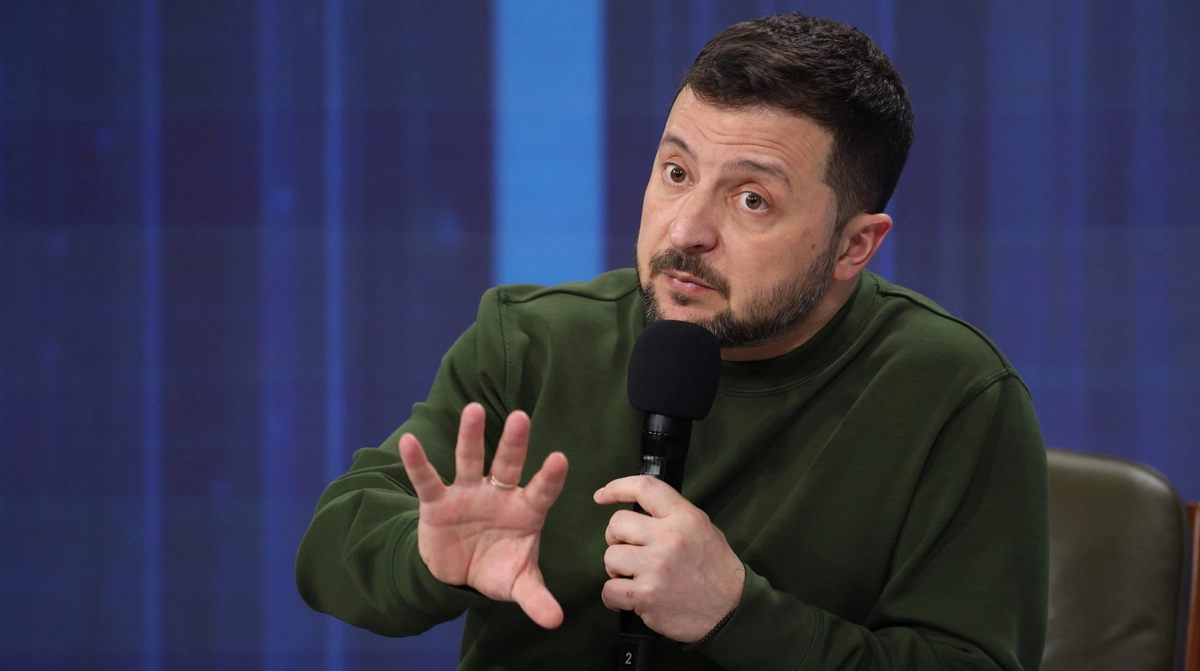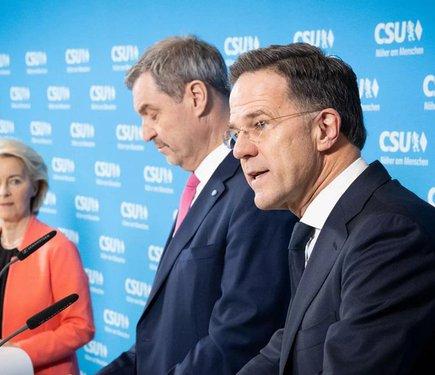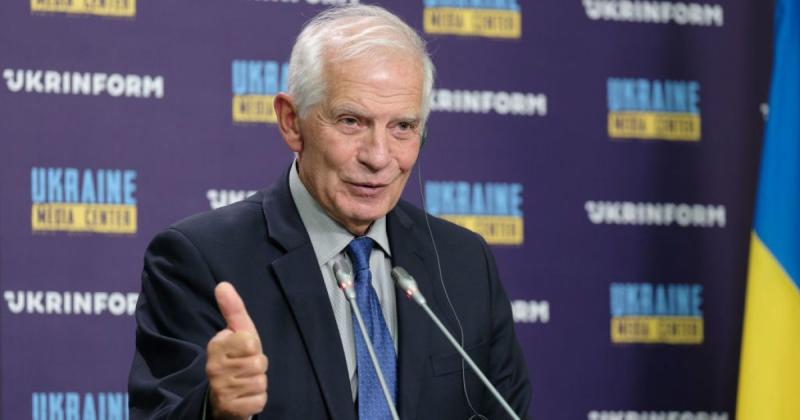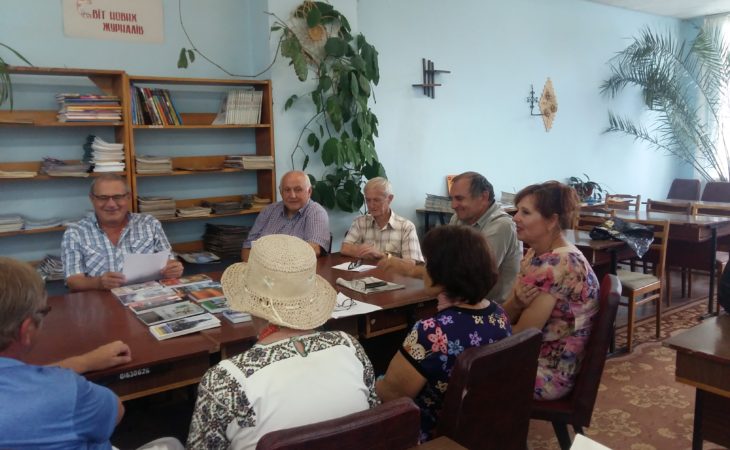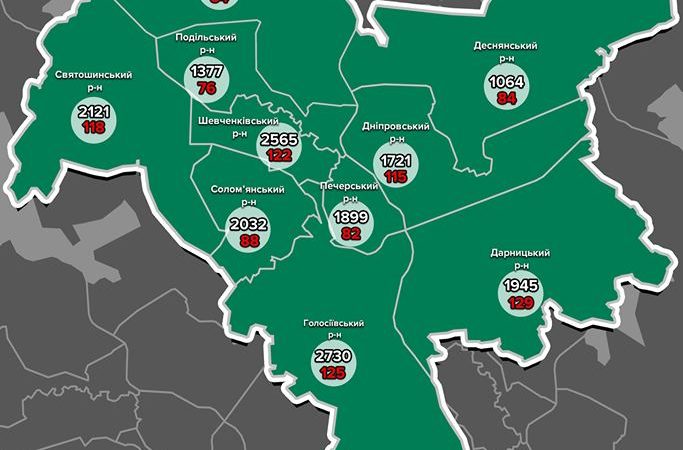FORUM OF FUTURE FORCES 2024: Technology for Defense and Lessons from Ukraine
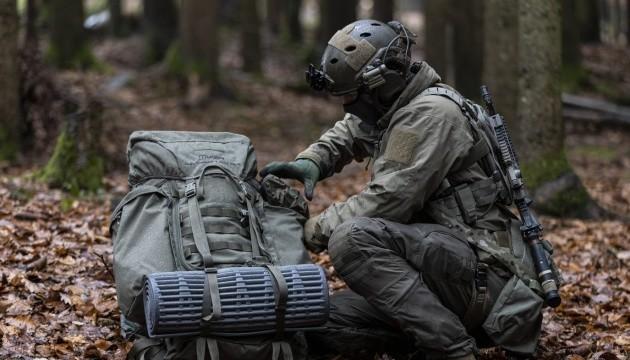
Вперше за два з половиною роки активної військової агресії Росії проти України в Європі аналізували досвід боротьби з підступним наступом безпосередньо від учасників цих трагічних подій.
Більше пів сотні українців від силових відомств, владних структур та представників підприємств і громадськості розповідали про власний досвід не через підручники та ЗМІ, а з відкритої сцени 15-го міжнародного "FUTURE FORCES FORUM 2024". Сталося це у середині жовтня у Чеській Республіці, в столичному експоцентрі PVA EXPO PRAHA.
У загальному, тематика цього форуму, коло учасників і його зміст традиційно зосереджувалися на питаннях міжнародної безпеки, співпраці між країнами-партнерами та відновленні критичної інфраструктури. Цей міжнародний захід, що зібрав виробників і споживачів продукції в галузі безпеки та оборони з понад 60 країн, відбувся в Празі під патронатом Президента Чеської Республіки Петра Павела та уряду Чехії. Важливо зазначити, що цього разу одним із ключових акцентів форуму стала Україна.
"Я ніколи не ставив під сумнів необхідність підтримки територіальної цілісності України. І перемогу у війні з росією неможливо досягнути, якщо половина українського населення загине. Тому одним з пріоритетів є забезпечення безпеки цивільного населення", - наголосив Петр Павел, виступаючи перед учасниками заходу.
Завдяки ініціативі та зусиллям Асоціації "Українська оборонна та безпекова промисловість" (АУОБП), на цьому міжнародному форумі вперше вдалося організувати значну міжвідомчу офіційну делегацію з України. Делегація включала офіцерів Державної прикордонної служби під керівництвом генерала Леоніда Барана, представників Нацгвардії, Державної служби з надзвичайних ситуацій, а також делегатів з мерій Києва, Харкова, Черкаської обласної ради та Донецької і Луганської обласних військових адміністрацій. Серед учасників також були провідні українські експерти у сферах енергетики, військових програм та цивільного захисту. Під час форуму українські виробники мали можливість представити свої інноваційні розробки, які були успішно застосовані як на полі бою, так і для охорони об'єктів критичної інфраструктури.
"Український народ вдячний усім демократичним країнам та європейській спільноті за допомогу, яку нам надають. Набутий досвід виживання у цій кривавій війні, яка триває, коштував нам десятки тисяч життів українців. Тому ми хочемо, щоб наші друзі використали його у разі схожої небезпеки для мінімізації втрат серед цивільного насехення і для якнайшвидчого відновлення ураженої інфрраструкутри та об'єктів життєзабезпечення", - наголосив співорганізатор Форуму Голова АУОБП Євген Крупа.
Укрінформу вдалося побувати на відкритих експозиціях, помацати "залізо", поспілкуватися з фахівцями, взяти участь у показових демонстраціях та відвертих дискусіях, стати свідком демонстрації вітчизняних технологій знищення ворога та цивільного захисту населення.
Треба зазначити, що офіційному відкриттю "FUTURE FORCES FORUM 2024" передували серйозні перемовини та підготовка. Рівень президентського патронату форуму засвідчив глибину розуміння очевидних та майбутніх наслідків небувалої за масштабами злочинів та руйнувань російської агресії для Європи та України.
Міністр оборони Чехії Мая Чернохова виявила підтримку ініціативи української сторони, підкресливши важливість обміну досвідом захисту та виживання цивільного населення під час збройної агресії в рамках конференції "Цивільна безпека та взаємодія".
"Ми зацікавлені в отримання інформації з перших вуст безпосередніх учасників кризових подій і я упевнена, що ініціатива українських колег буде широко підтримана представниками країн Євросоюзу", - зазначила Мая Чернохова.
На форумі оборонних технологій "FUTURE FORCES FORUM 2024" у кількох павільйонах були представлені вдосконалені моделі озброєння та військової техніки, які враховують досвід України у сучасних бойових діях. Виробники акцентують увагу на посиленні броньованих конструкцій та вдосконаленні систем моніторингу на полі бою, що дозволяє екіпажам краще орієнтуватися в умовах бою. Більшість новинок відповідає викликам як гібридної, так і традиційної війни, що відбувається на сході України. Виставлені засоби боротьби з безпілотниками, включаючи технології блокування їхніх каналів управління та передачі даних, легка бронетехніка та MRAP-автомобілі, адаптовані для міських боїв. Яскраво проявляється тенденція до активного оснащення бронетехніки сучасними системами захисту: активними (для знищення керованих снарядів) і динамічними (для протидії кумулятивним та іншим типам боєприпасів). Окрему увагу приділено системам, що забезпечують захист від мін і фугасів дистанційного управління. Виставлені також дистанційно керовані технології для розмінування та доставки вантажів, а також спеціальні оптичні системи, які вказують на потенційні загрози та місцезнаходження своїх сил. У Празі також були представлені рішення для криптографії, що забезпечують безпечний захист інформації військових комунікацій, різноманітна стрілецька зброя, роботизовані системи, мобільні модульні військові шпиталі, надувні макети танків і зенітно-ракетних комплексів, високоточні боєприпаси, а також спорядження та амуніція.
Кожен день форуму починався з панельних дискусій, відвідування українських стендів та пошуку партнерів не лише у сфері виробництва зброї та захисту персоналу збройних сил, а й у галузі цивільної безпеки. У цьому контексті міжнародна робоча група під егідою FUTURE FORCES FORUM (FFF) в партнерстві з Асоціацією "Українська оборона та безпекова промисловість" (UADSI) та Асоціацією промисловості оборони і безпеки Чехії (AOBP) дотримувалася затверджених концепцій конференції "Майбутнє цивільної безпеки" (FCS), що охоплює питання військової та цивільної безпеки, сформовані на основі досвіду та уроків, отриманих під час конфлікту в Україні. Значну роль у міжнародних контактах та переговорах відіграв великий український друг, урядовий уповноважений Чехії з питань відновлення України, Томаш Копечний.
Конференція FCS створила спеціалізовану платформу для співпраці та обміну інформацією, де обговорюються виявлені та засвоєні уроки не тільки з бойових зон для посилення обороноздатності та внутрішньої безпеки держав НАТО і їх партнерів, але й питання, пов'язані з наданням Україні необхідної підтримки у вигляді постачання обладнання та послуг, що сприяють безпеці цивільного населення та інфраструктури, а також відновленню територій, які постраждали від війни.
На форумі також відбулися панельні дискусії, спрямовані на вдосконалення та оптимізацію взаємодії між військовими, безпековими та цивільними структурами, такими як уряд, регіональні, муніципальні та місцеві органи влади, у кризових ситуаціях. Це важливо для захисту інфраструктури, швидкого відновлення та підтримання життєдіяльності цивільного населення. Особливо варто відзначити інтерес до заходу з боку представників європейських інституцій. Серед активних учасників обговорень у Празі був Алессандро Вальдамбріні, офіційний представник відповідного підрозділу Єврокомісії, а саме — Заступник начальника відділу Генерального директорату з питань цивільного захисту та гуманітарної допомоги в Європі (ECHO). Він охоче поділився інформацією про можливості, які надають європейські партнери та іноземні донори для відновлення України, коментуючи ці питання для Укрінформу. Вальдамбріні підкреслив, що DG ECHO A2 не має права фінансувати інфраструктурні проєкти в Україні, проте активно співпрацює з різними донорами, включаючи міжнародні організації, такі як Всесвітня організація охорони здоров'я (WHO), USAID та Міжнародний комітет Червоного Хреста, а також з урядами інших країн, включаючи регіони Близького Сходу та Азійсько-Тихоокеанського регіону. Таким чином, майбутні обміни з представниками центральних органів влади та місцевого самоврядування матимуть значну додану вартість.
Досвід та уроки України, представлені під час панельних дискусій, виявилися надзвичайно інформативними для іноземних партнерів. Серед ключових тем були пошуки рішень для таких викликів, як масове переміщення населення через кордони в умовах воєнного стану, роль підрозділів МВС у забезпеченні стабільності на деокупованих територіях, діяльність кіберполіції під час конфлікту, координація евакуаційних заходів, а також функціонування прифронтових міст-мільйонників. Учасники обговорювали реальні виклики, потреби та унікальні рішення в галузі енергетичної безпеки та захисту критично важливої інфраструктури, враховуючи загрози, пов'язані з мінами на морі та гуманітарні розмінування.
Досвід України у війні та захисті від агресії підтверджує зростаючий розрив між тими країнами та компаніями, які змогли скористатися можливостями Четвертої індустріальної революції, і тими, хто залишився позаду. Конфлікт в Україні лише прискорює цей процес. Він ілюструє, як інновації перевершують прості технічні винаходи. Якщо винахід є лише технічним рішенням, то інновація охоплює значно ширший спектр — це здатність перетворити продукт або процес на комерційно вигідний актив.
Сьогодні керівники з Росії, Ірану та Кореї, починаючи від монархів і закінчуючи сучасними лідерами, вважають, що технології є ключем до модернізації. Однак це хибне переконання. Справжня відповідь криється не в самих технологіях, а в соціально-економічному середовищі, яке стимулює їх розвиток і комерціалізацію. В Україні, Європі та на Заході добре усвідомлюють, що успіх залежить від культурних цінностей і способу життя суспільства. Ключовими елементами культури, які сприяють розвитку ідей і їх інтеграції в успішні бізнеси, є демократичний устрій, вільний ринок, де інвестори зацікавлені в нових технологіях, а також наявність захисту інтелектуальної власності, контроль над корупцією та злочинністю, а також правова система, яка забезпечує можливість виправдання для обвинуваченого і покарання для винного. Така культура заохочує критичні думки, підтримує незалежність і визнає право на невдачу, що відкриває шлях для нових спроб.
Ці основоположні принципи були підтверджені на ювілейному заході "FUTURE FORCES FORUM 2024". Уперше в історії форум об'єднав виробників озброєння та експертів у сфері цивільного захисту з метою пошуку ефективних рішень для галузі. Наступний форум планується провести у Варшаві або Гельсинках, наразі організатори ведуть переговори, а Прага активно готується до його повторного проведення 21-23 жовтня 2026 року.
За підсумками Форуму практично усі представники української міжвідомчої делегації подтримали ініціативу Асоціації "Українська оборона та безпекова промисловість" щодо передачі досвіду європейським колегам у сфері забезпечення безпеки цивільного населення та підписали меморандум про співробітництво у даному напрямку.
Успіх даного заходу став можливим завдяки ефективній співпраці та підтримці таких осіб, як Алессандро Вальдамбріні, який є заступником начальника відділу Генерального директорату з питань цивільного захисту та гуманітарної допомоги в Європі (ECHO), Моніка Ладманова - голова Представництва Європейської Комісії в Чеській Республіці, Томаш Копечний - Урядовий уповноважений Чеської Республіки з питань відновлення України, а також генерал Радек Хасал, голова військової канцелярії президента Чеської Республіки. Серед організаторів заходу слід відзначити Даниєля Кочу, керуючого директора Форуму сил Майбутнього, Иржі Хинека, президента Асоціації промисловості оборони та безпеки Чеської Республіки, а також Євгена Крупу, голову правління Асоціації Українська оборонна та безпекова промисловість.
Андрій Лисенко, Роман Сущенко, спеціально для Укрінформу.
FUTURE FORCES FORUM 2024: Defense Technologies and Lessons from Ukraine
For the first time in over two and a half years of open military aggression by Russia against Ukraine, Europe has had the chance to learn firsthand from those directly involved in the conflict. More than fifty Ukrainians from law enforcement, government, industry, and civil society shared their experiences not through textbooks or media reports, but from the stage of the 15th annual FUTURE FORCES FORUM 2024. This event took place in mid-October at the PVA EXPO PRAHA in the Czech Republic's capital.
This year's forum, much like its predecessors, primarily addressed topics related to global security, collaborative partnerships, and the rebuilding of essential infrastructure. Taking place in Prague and supported by Czech President Petr Pavel along with the Czech government, this international gathering drew participants from the security and defense sectors across more than 60 nations. Notably, a significant emphasis this year was placed on the situation in Ukraine.
"I have always regarded the preservation of Ukraine's territorial integrity as essential. Achieving victory in the conflict with Russia is impossible if a significant portion of Ukraine's population is lost. Consequently, prioritizing the protection of civilians is of utmost importance," stated Petr Pavel during his speech to the forum attendees.
Thanks to the proactive efforts of the Ukrainian Defense and Security Industry Association (UDSIA), Ukraine was represented by a significant, multi-agency official delegation at this international forum for the first time. The group comprised officers from the State Border Guard Service, headed by General Leonid Baran, along with representatives from the National Guard, the State Emergency Service, and local authorities from Kyiv, Kharkiv, and the Cherkasy Oblast Council. Additionally, officials from the Donetsk and Luhansk Regional Military Administrations participated, accompanied by prominent national specialists in energy, military initiatives, and civil defense. During the forum, Ukrainian manufacturers showcased their latest advancements, which have demonstrated effectiveness on the battlefield as well as in the protection of vital infrastructure.
"The citizens of Ukraine deeply appreciate the backing of all democratic countries and the European community. The grueling struggle for survival in this relentless and brutal conflict has claimed tens of thousands of Ukrainian lives. We trust that our allies will leverage this hard-earned wisdom, should they encounter comparable dangers, to reduce civilian harm and expedite the rebuilding of critical infrastructure and vital services," highlighted Yevhen Krupa, co-organizer of the Forum and Head of the Ukrainian Defense and Security Industry Association (UDSIA).
Ukrinform was granted the chance to visit open exhibitions, interact with the "hardware," engage with specialists, and take part in live demonstrations and open discussions. The delegation experienced firsthand the showcase of Ukrainian innovations designed for neutralizing threats and safeguarding civilians.
It is important to highlight that the formal inauguration of the FUTURE FORCES FORUM 2024 followed significant discussions and thorough planning. The backing from the presidency emphasized a deep recognition of the current and forthcoming consequences of Russia's unparalleled aggression and devastation for both Europe and Ukraine.
Czech Defense Minister Jana Černochová expressed her endorsement of the Ukrainian delegation's proposal, promoting the ongoing exchange of knowledge regarding civilian safety and survival tactics in the face of armed conflict at the "Civil Security and Cooperation" conference.
"We eagerly await direct insights from individuals who are actively engaged in these crises, and I believe that the initiative proposed by our Ukrainian counterparts will gain significant support from EU officials," stated Jana Černochová.
At the FUTURE FORCES FORUM 2024, several pavilions showcased modernized weaponry and military equipment designed with consideration of Ukraine's recent combat experience. Manufacturers focused primarily on enhanced armor and improved battlefield situational awareness to help crews navigate effectively. Many new models are designed to address both hybrid and conventional warfare dynamics observed in eastern Ukraine. Anti-drone technologies, such as systems that jam control and data channels, were prominently displayed, alongside lightweight armored vehicles, MRAPs adapted for urban warfare, and other innovations.
One significant trend is the broad incorporation of active protection systems designed to intercept both guided and traditional projectiles, alongside reactive armor aimed at neutralizing cumulative and various other types of ammunition on armored vehicles. Additionally, advancements in remote technologies for demining and logistical support have been emphasized, along with specialized optical systems that notify troops of potential threats and indicate the locations of friendly forces.
The conference held in Prague showcased cutting-edge cryptographic technologies designed to safeguard military communications, an assortment of small weaponry, robotic systems, mobile modular field hospitals, inflatable decoy tanks, air defense systems, precision-guided munitions, along with specialized tools and equipment.
Each day of the forum commenced with engaging panel discussions and tours of Ukrainian exhibits, where attendees explored opportunities for collaboration not just in the production of weaponry and the protection of military personnel, but also in enhancing civilian defense capabilities. In this framework, an international working group, supported by the FUTURE FORCES FORUM (FFF) and in partnership with the Ukrainian Defense and Security Industry Association (UADSI) along with the Czech Republic's Association of the Defense and Security Industry (AOBP), was established in alignment with the "Future of Civil Security" (FCS) conference theme. This initiative aims to tackle both military and civilian security challenges, drawing from the insights and experiences gained during the ongoing conflict in Ukraine.
Tomáš Kopečný emerged as a key player in fostering international relationships and negotiations, serving as a steadfast ally to Ukraine and acting as the Czech Republic's official envoy for Ukraine's reconstruction efforts.
The FCS conference has created a unique forum designed for engagement and the sharing of insights, emphasizing experiences gained from active conflict areas. This initiative aims to bolster defense and internal security within NATO and its partner nations while also delivering vital assistance to Ukraine. This support encompasses not only the provision of equipment and services to enhance civilian safety and safeguard infrastructure but also the vital task of rebuilding regions impacted by war.
Panel discussions at the forum focused on enhancing and streamlining cooperation between military, security, and civilian organizations—encompassing government bodies as well as regional, municipal, and local authorities—during times of crisis. The aim was to protect critical infrastructure and facilitate the swift recovery and operational continuity of civilian regions. The event garnered considerable interest from European representatives, notably Alessandro Valdambrini, the Deputy Head of the European Commission's Directorate-General for Civil Protection and Humanitarian Aid (ECHO), who took part in the discussions held in Prague.
In an interview with Ukrinform, Valdambrini addressed the resources and backing provided by European allies and global donors for the reconstruction efforts in Ukraine. He transparently acknowledged that ECHO A2 (the Civil Protection and Humanitarian Aid Operations Directorate) lacks the authority to finance infrastructure initiatives within Ukraine. However, he emphasized its strong partnerships with a variety of donors and international bodies, including the World Health Organization (WHO), USAID, and the International Committee of the Red Cross, along with governments from the Middle East and Asia-Pacific regions. This collaborative approach is expected to enhance future engagements with representatives from both Ukraine's central and local governments.
The Ukrainian journey in tackling issues like large-scale displacement across borders amid conflict, the role of internal forces in securing newly liberated areas, the operations of cyber law enforcement throughout the war, the organization of evacuation efforts under martial law, and the management of a frontline metropolis with a population of one million—these challenges and realities, along with pressing wartime necessities and innovative approaches to energy security, safeguarding critical infrastructure, addressing maritime mine hazards, and humanitarian demining—have offered important and enlightening lessons for our international allies during panel discussions.
Ukraine's journey through conflict and its efforts to defend against external threats reveal a widening gap between nations and enterprises that have harnessed the advantages of the Fourth Industrial Revolution and those that remain behind. The ongoing conflict in Ukraine has intensified this trend, emphasizing the superiority of innovation over basic technological invention. While an invention refers to a new technical solution, innovation encompasses a broader scope—it represents the capacity to transform a product or process into a commercially successful endeavor.
Currently, the leaders of Russia, Iran, and North Korea—spanning from historical czars and supreme leaders to contemporary dictators—maintain the belief that modernization hinges on technological advancement. Yet, this perspective is misguided. The true catalyst for progress resides not in technology alone, but in the socio-economic framework that nurtures innovation and facilitates its commercialization. Nations like Ukraine, along with Europe and the West, understand that the foundation of success is rooted in cultural values and societal norms. Essential cultural components that enable ideas to flourish and evolve into prosperous business ventures include democratic systems, open markets that attract investment in new technologies, robust intellectual property laws, measures to combat corruption and crime, and a judicial framework that ensures fair trials for the innocent and accountability for the guilty. This cultural backdrop promotes critical thinking, fosters independence, and embraces failure as an integral part of the path to future success.
The event "FUTURE FORCES FORUM 2024" underscored several key insights. It marked the inaugural gathering of arms manufacturers and civil defense specialists, united in their pursuit of viable solutions within the industry. The upcoming forum is set to be held in either Warsaw or Helsinki, as the organizers finalize the venue. Meanwhile, preparations are underway in Prague for its anticipated return from October 21 to 23, 2026.
After the Forum concluded, almost all members of the Ukrainian interagency delegation expressed their backing for the Ukrainian Defense and Security Industry Association's initiative to exchange knowledge on civilian safety with their European counterparts. They subsequently signed a memorandum of cooperation in this field.
The success of the event was made possible thanks to the fruitful collaboration and support of Alessandro Valdambrini, Deputy Head of the Civil Protection and Humanitarian Aid Directorate-General in Europe (ECHO), Monika Ladmanová, Head of the European Commission Representation in the Czech Republic, Tomáš Kopečný, Government Commissioner for Ukraine's Reconstruction in the Czech Republic, and General Radek Hasal, Head of the Military Chancellery of the President of the Czech Republic. The event organizers included Daniel Koči, Managing Director of the Future Forces Forum, Jiří Hynek, President of the Defense and Security Industry Association of the Czech Republic, and Yevhen Krupa, Chairman of the Board of the Ukrainian Defense and Security Industry Association.
Andriy Lysenko, Roman Sushchenko, special for Ukrinform
Інші публікації
Популярне

У тренді

